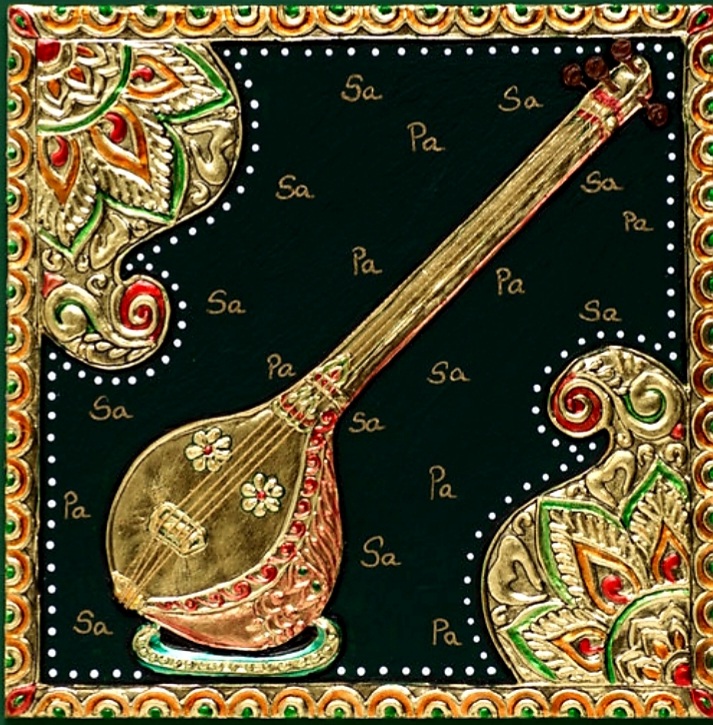
Carnātic music is a divine art form originating from ancient Hindu traditions in the southern part of the Indian Subcontinent. This style of music is considered as one of the oldest systems of music in the world and it has been a popular choice to learn amongst the traditional art forms. This art form continues to have a strong presence in the community due to many reasons. There are parents who enrol their children in Carnātic music to preserve this ancient art as a way to connect with culture, tradition and discipline. Furthermore, learning of a new art form at a tender age (vocal or instrumental) empowers students in many ways throughout their life.
The empowerment through Carnātic music are discussed below.
1. Improves greater connection with the community and cultural custom
- opportunity to learn about the rich culture, festivals and religion through music.
- songs of Carnātic music references the stories of South Indian traditions, devotion to God and touches on various Hindu philosophies. Singing and playing Carnātic music can elevate the individual both intellectually and emotionally, preserving the rich culture for future generations. Similarly, rāgas (melody) also have the ability to transport oneself to an ancient time evoking moods that resonate with the soul.
2. Develops self-discipline and perseverance
- consistent practice of Carnātic music overtime, builds and strengthens one's mindset and self-discipline. The practice routine, performance skills and the ability to touch the soul of the listener evolves as the practitioner matures. This requires patience and perseverance even when an individual encounters challenges with a composition. A student must be open to constructive criticism from their Gurus and continuously seek ways to improve themselves. This will strengthen a student's resolve and character in all aspects of their life. Accomplished musicians often credit hard work, perseverance and self discipline for their success.
3. Improves mathematical skills
- sruthi (melody) is considered to be the mother of music and layam (rhythm) is considered to be the father of music. The ability to maintain these two important elements in parallel while performing is an important skill that must be nurtured and developed. One must be able to visualize the placement of notes within the rhythmic structure when learning compositions and improvising.
- when performing kalpanaswarās, (a form of improvisation that explores a rāga with solfa syllables) a Carnātic musician may choose to present simple or advanced concepts often creating intricate mathematical patterns spontaneously, adding an intellectual touch to the musical presentation.
4. Enhances functions of the mind
- increased memory, concentration and hearing
- leads to positive energy and alertness
- develops the ability to listen keenly, understand and execute with precision
5. Improves listening skills (kelvi-gnānam)
- a good music student develops the ability to understand the nuances in music in terms of pitch (sruthi), melody (rāga), oscillations (gamakās) and tempo (kāla).
6. Develops coordination and motor skills
- learning vocal or instrumental music assists in the development of motor and hand-eye coordination skills. Learning the techniques pertaining to these skills along with the ability to communicate musical thoughts effectively requires discipline, patience and perseverance.
7. A form of relaxation, stress relief and mood enhancer
- calms and soothes the human soul
- sound energy (nādha yoga) and vibration from music has a remarkable effect on the mental state.
- it provides peace, greater concentration, breath control, relaxation and a spiritual feeling.
8. Possess numerous health benefits
- different rāgas are known to treat different types of diseases (such as hypertension, indigestion and asthma, lowers blood pressure, to name a few).
9. Opportunity to learn important life lessons and skills
- time management skills
- develop team building skills
- develop empathy and respect for elders and others
- self-improvement skills
- learn to help team members and others
- enhances all aspects of educational skills
- learn music as a form of yoga and meditation (important for the mind, body and soul)
10. Self-expression through creativity
- Carnātic music allows self-expression and creativity through numerous avenues. Through the learning of compositions and improvisation techniques, students strive to apply their knowledge to create musical pieces that express their emotions.
- opportunity to create music and perform to an audience boosts the student's self-confidence
11. Opportunity to transpose one's musical knowledge, whilst learning an ancient art form
- discovering new variations and swarā patterns, allows the ability to exchange stories, discoveries and ideas with others.
12. Ability to connect with various musical communities
- a solid foundation in Carnātic music enables one to perform other genres of music with ease. It also allows for an unique collaboration with other musical styles.
The benefits of learning Carnātic music are immense. Carnātic music empowers and encourages youth to become leaders in today's society. It empowers an individual to connect with the community, gain self-confidence and build self-discipline. The learning and exposure to this art form has become easier with the extensive resources available today, online and in the community.
One is never too young or too old to start learning Carnātic music and that's the beauty of this ancient art form!

























